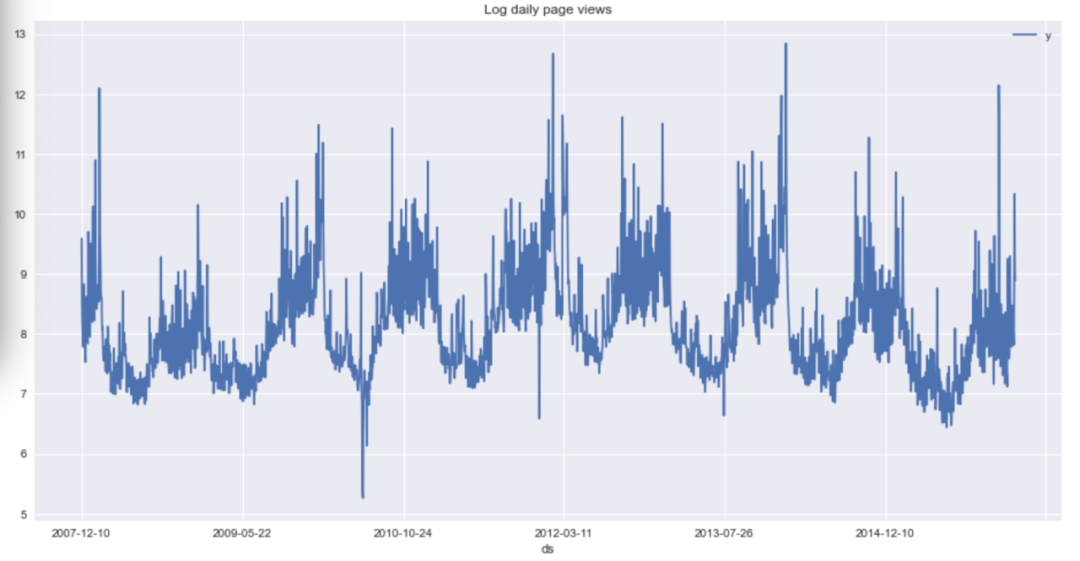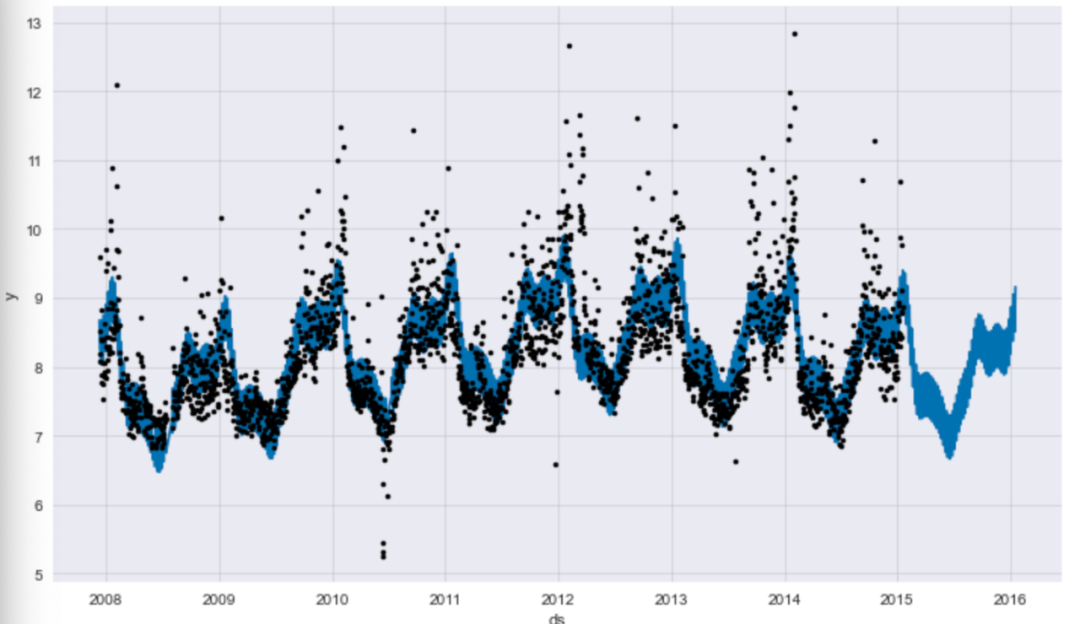NeuralProphet
简介
几乎绝大多数做时间序列的朋友都了解Facebook的Prophet模型,因为其在准确性、可解释性等方面有着良好的性能,而且可以为用户自动化许多元素(如超参数选择或特征工程),因而它获得了广泛的应用。介绍一个最新的NeuralProphet时,从名字就可以看出,这个是神经网络和Prophet的结合,与传统的黑盒NN不同,就介绍的NeuralProphet模型集成了Prophet的所有优点,不仅具有不错的可解释性,还有优于Prophet的预测性能。
NeuralProphet
1、Prophet
Prophet如果认为是基本自回归的扩展(除了使用lagged的目标值,还对输入变量使用傅立叶变换,可以通过调模型拿到更好的结果)。
- Prophet可以使用额外的信息,不仅仅是target的延迟值;
- 模型能融入节假日信息;
-
2、NeuralProphet
和许多黑盒子的NN不同,NeuralProphet保留了Prophet的所有优势,同时,通过引入改进的后端(Pytorch代替Stan)和使用自回归网络(AR网络),将神经网络的可扩展性与AR模型的可解释性结合起来,提高其准确性和可扩展性。
AR网络——它是一个单层网络,经过训练可以模拟时间序列信号中的AR过程,但规模比传统模型大得多。
3、NeuralProphet VS Prophet
NeuralProphet使用PyTorch的梯度下降进行优化,使得建模速度更快;
- 利用自回归网络对时间序列自相关进行建模;
- 滞后回归器使用单独的前馈神经网络建模;
- NeuralProphet具有可配置的前馈神经网络的非线性深层;
- 模型可调整到特定的预测范围(大于1);
- 提供自定义的损失函数和度量策略;
代码
1、数据读取
```python!pip install neuralprophet
import pandas as pd from fbprophet import Prophet from neuralprophet import NeuralProphet from sklearn.metrics import mean_squared_error
plotting
import matplotlib.pyplot as plt
settings
plt.style.use(‘seaborn’) plt.rcParams[“figure.figsize”] = (16, 8) df = pd.read_csv(‘./data/wp_log_peyton_manning.csv’) print(f’The dataset contains {len(df)} observations.’) df.head()
The dataset contains 2905 observations.| <br /> | ds | y || --- | --- | --- || 0 | 2007-12-10 | 9.590761 || 1 | 2007-12-11 | 8.519590 || 2 | 2007-12-12 | 8.183677 || 3 | 2007-12-13 | 8.072467 || 4 | 2007-12-14 | 7.893572 |```pythondf.plot(x='ds', y='y', title='Log daily page views');
2、Prophet预测
test_length = 365df_train = df.iloc[:-test_length]df_test = df.iloc[-test_length:]prophet_model = Prophet()prophet_model.fit(df_train)future_df = prophet_model.make_future_dataframe(periods=test_length)preds_df_1 = prophet_model.predict(future_df)prophet_model.plot_components(preds_df_1);prophet_model.plot(preds_df_1);
3、NeuralProphet
nprophet_model = NeuralProphet()metrics = nprophet_model.fit(df_train, freq="D")future_df = nprophet_model.make_future_dataframe(df_train,periods = test_length,n_historic_predictions=len(df_train))preds_df_2 = nprophet_model.predict(future_df)nprophet_model.plot(preds_df_2);
4、效果比较
- NeuralProphet的效果比Prophet好了很多。 ```python df_test[‘prophet’] = preds_df_1.iloc[-test_length:].loc[:, ‘yhat’] df_test[‘neural_prophet’] = preds_df_2.iloc[-test_length:].loc[:, ‘yhat1’] df_test.set_index(‘ds’, inplace=True)
print(‘MSE comparison ——‘) print(f”Prophet:\t{mean_squared_error(df_test[‘y’], preds_df_1.iloc[-test_length:][‘yhat’]):.4f}”) print(f”NeuralProphet:\t{mean_squared_error(df_test[‘y’], preds_df_2.iloc[-test_length:][‘yhat1’]):.4f}”)
```pythonMSE comparison ----Prophet: 0.3576NeuralProphet: 0.3057
小结
NeuralProphet在时间序列预测的效果上面一般会比Prophet好很多,在遇到时间序列问题的时候强烈建议大家尝试一下。



